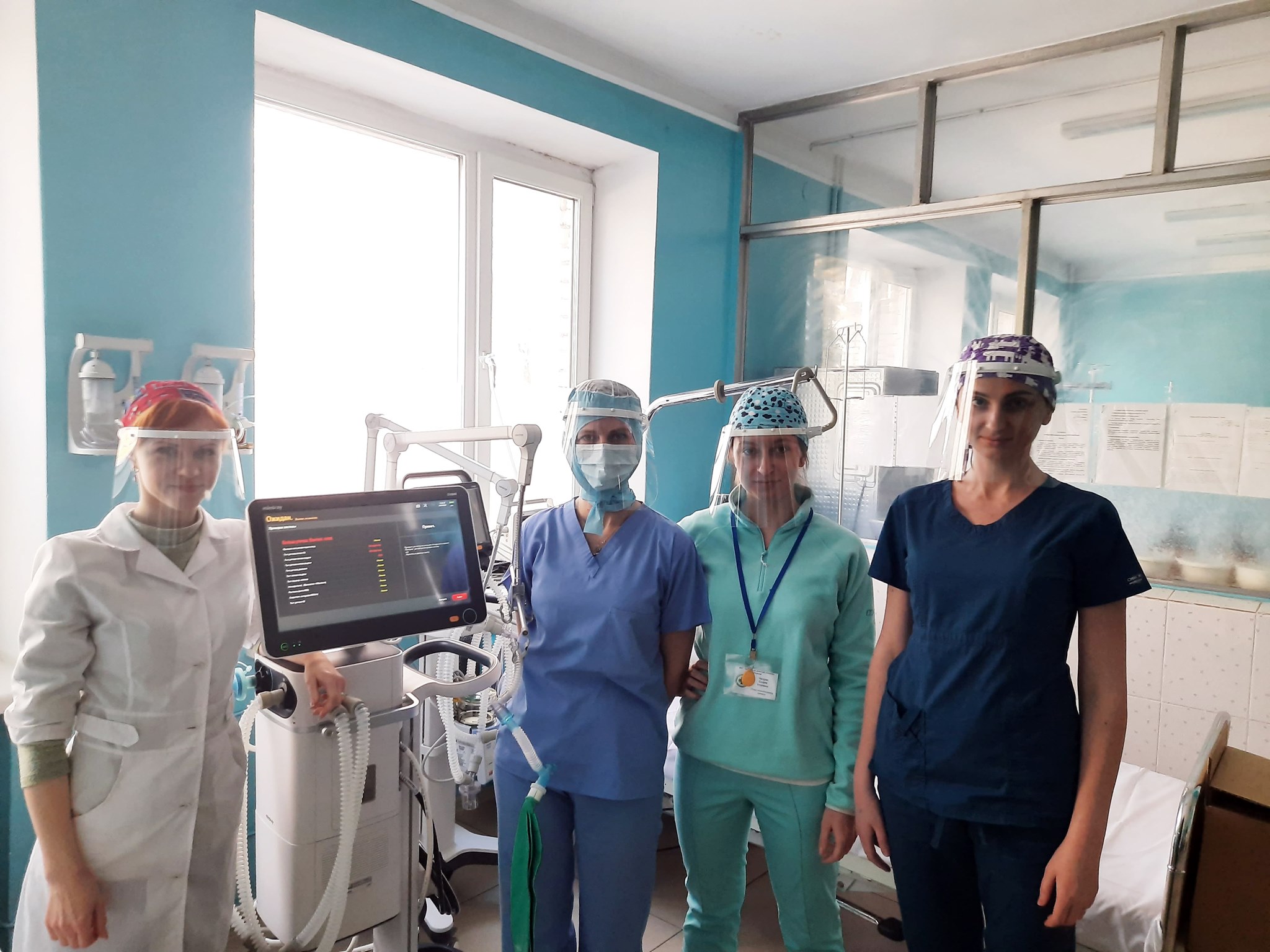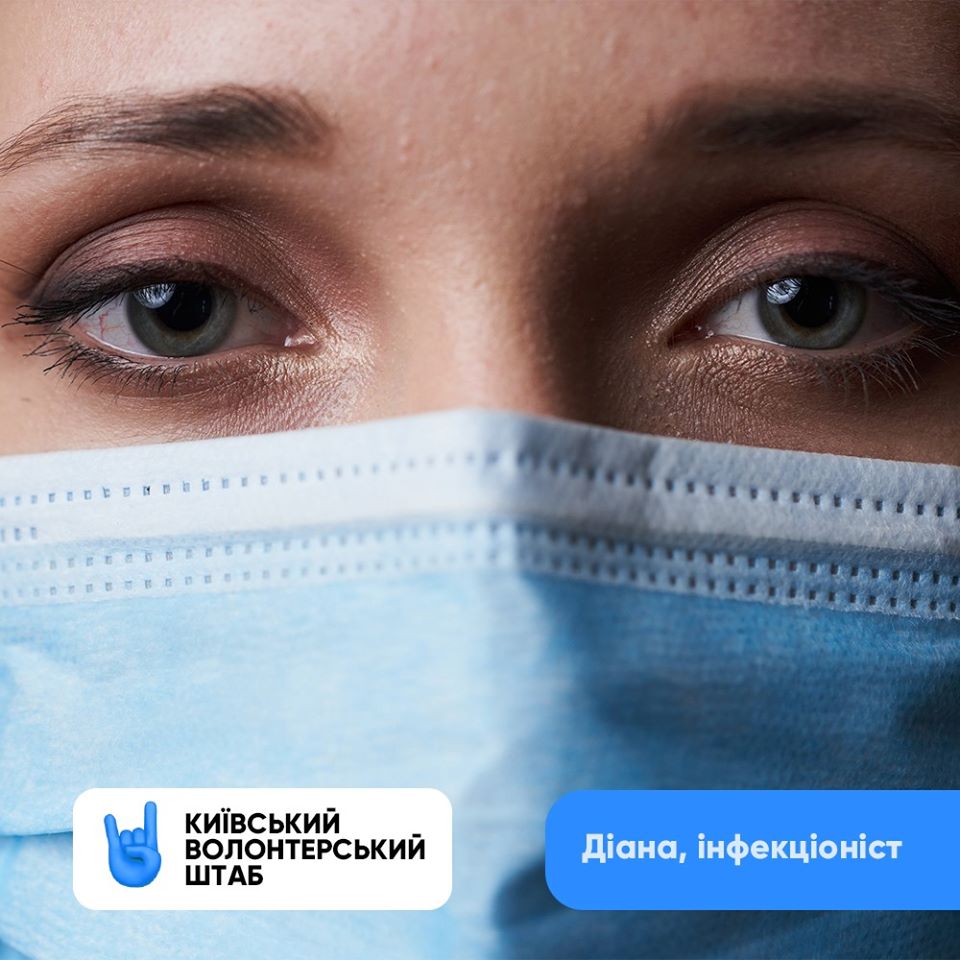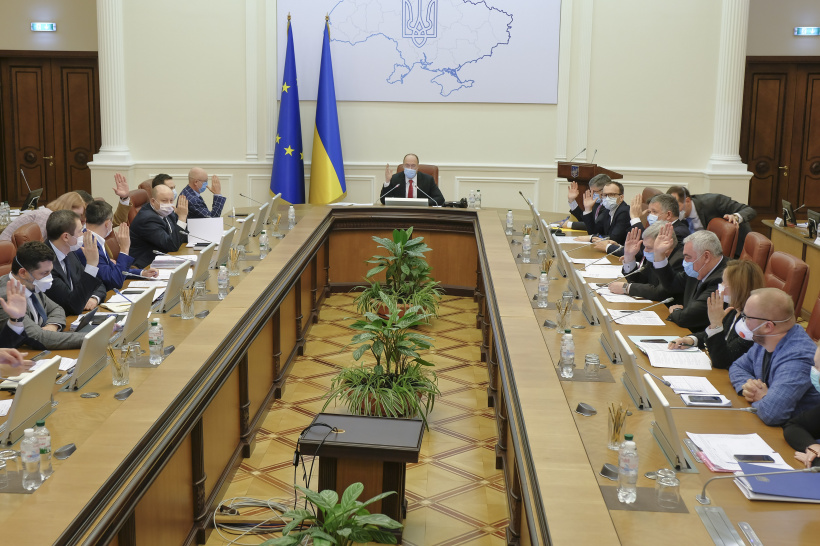Times of crisis serve as the best indicators to reveal human nature. COVID-19 has caused anxiety and fear around the globe. Ukraine is no different. However, at the same time, it has galvanized people throughout the country to unite and to care about each other. For Ukraine, the spread of the novel coronavirus is not the first extremity the nation has had to withstand.
When the 2014 Euromaidan Revolution set Ukraine literally on fire, ordinary citizens stepped forward en masse to volunteer. They became a driving force in Euromaidan, rapidly organizing themselves on the urban battlefield and banding together to defend each other from the government’s attacks — in the face of real danger. Volunteers were the first to help the devastated Ukrainian Army when Russia invaded Ukraine and instigated the Donbas war.
Today, as the COVID-19 pandemic spreads, Ukrainians are stepping forward again, this time to help fight the invisible aggressor. With limited resources, volunteers are doing all they can to help doctors and other medical workers, as the number of the infected increases.
Among those making a contribution to support healthcare providers are both small and big businesses: those in the food supply chain, distributors and transport drivers; scientists, including researchers and laboratories; clothing manufacturers, redirecting their factories to produce regulation hospital attire; and even kids.
Those who need the most help – as everywhere in the world – are doctors and other medical workers. The lack of pharmaceuticals and equipment in Ukrainian hospitals is nothing new. But the pandemic has laid bare the defects of the healthcare system. Healthcare workers face shortages of such essentials as Personal Protective Equipment (PPE), masks, gloves, scrubs, and gowns.
More than ever, medical workers – the frontline on the coronavirus battleground – have found themselves almost entirely unprotected, with the real scale of the problem yet to be revealed. As of 21 April, the number of medical workers infected with COVID-19 was 1138 out of the total 6125 infected people in Ukraine.
Face shields from innovative 3D-printing initiative

Fabricator/FabLab is an innovative laboratory in Kyiv, with an out-of-the-box approach to the pursuit of science. Its mission is to provide instruments to individuals who are dedicated to creating new and practical prototypes. Their devotees range from amateur enthusiasts to academic researchers. Prior to the pandemic, the laboratory provided equipment for 3D-printing, 3D-scanning, laser cutting and other technologies applied in modern-day scientific work.
As soon as the outbreak of COVID-19 in China became public, the laboratory started refocusing its initiatives to help fight the coronavirus. When an adapted version of medical face shields came into use in Europe, Fabricator/FabLab launched their own modified version that was better suited for use in Ukraine. Laboratory specialists consulted closely with Ukrainian doctors and manufacturers to ensure the best outcome.
To date, the laboratory has sent more than 5,000 face shields across the country. Currently, it is preparing materials needed to assemble apparatus for artificial lung ventilation.
Maryna Chernysh, Fabricator/FabLab CEO, notes in an interview with RFE/RL’s Ukrainian desk service in Ukraine that there are more than 1,500 such laboratories in the world. However, this lab is the only one which is able to produce face shields on such a large scale, and around-the-clock.
The laboratory has called for donations and is offering the choice of hospital to benefit. As the laboratory managed to automate the production on 3D-printers and increase the volumes, it has been able to reduce the price of a mask to UAH 125 (less than $6). A discount is available for orders of 1,000 or more. Doctors receive the shields for free.
Small initiatives in local communities join the marathon of help

Dr. Volodymyr Rozhko is an anesthetist from Dnipro. He learned innovative solutions for face protection from his European colleagues. Local volunteers helped him by finding drawings on adopting diving masks to protect against infections. Previously, such masks were made in Italy during the apex of their plight.
Another local initiative to ensure medical staff were supplied with PPE, was the rapid production of medical attire. In one example, a team of four garment makers for the fashion brand I Want What I Can Do produced 60 medical gowns, in just 12 days, for the nurses of Lymansky District, Odesa Oblast.

Anzhelika Derevtsova, the founder and head designer of the fashion brand, says the most difficult challenge they faced was to source the proper fabric during quarantine. Little material was available, no matter where they searched. Their task was made almost impossible because of closed borders. Calling more than a dozen suppliers, her team found only 175 meters of laminated spunbond.
Spunbond is a unique polyester fabric created from nonwoven fabric. It has excellent waterproof and water-repellent properties, and is typically used as healthcare textiles.
Her medical attire is in high demand. As of 21 April there were 146.cases of the infections in Odesa oblast alone.
⠀Kyiv Volunteer Headquarters to coordinate help
Given the shortcomings of the healthcare system in Ukraine, physicians usually bear the brunt of society’s discontent. People’s frustration is often directed at the medical professionals on the frontline of care, regardless of the fact that they themselves often become victims of state healthcare politics.

The Kyiv Volunteer Headquarters quotes Doctor Diana, an infectious disease specialist, “Doctors are often criticized in social media. The high-minded repeat that we take the Hippocratic Oath. But in reality, every medical professional has made a far more important oath – to be human and caring, and to do so by example. Every Ukrainian has a chance today to promise the same, and to help protect the healthcare providers of the country. After all, every medical professional, like the military, has the right to know someone has their back.”
The Kyiv Volunteer Headquarters mission is to help medical professionals in every way they can. They are aimed to make doctors as popular as rock stars, encouraging people to help them.
The project was launched to procure equipment and PPE for Kyiv hospitals, and to help coordinate donations. Entrepreneur Ihor Liski and advisor to the Kyiv Mayor Maksym Bakhmatov initiated the project on the base of Kyiv City State Administration.
Dr. Maksym Trembanchuk is key to the operation, and coordinates the repair of artificial lung ventilation apparatus — known as ventilators. He explains that raising money is not the main problem. The biggest challenge is which help should be directed and where.
Dr. Trembanchuk and his team take great care in evaluating the needs of hospitals, by considering all aspects of hospital treatment and especially intensive care. From these assessments, they are able to create a therapeutic profile for health centers. A thorough, if lengthy, process that ensures the right support gets to the right people.
The medical specialist points out that apart from the much-needed ventilators, all intensive care units require monitors, syringe pumps, pulse oximeters and other costly equipment to function effectively. If any one of these components is missing, ventilation is useless. Critical to the actual apparatus is the connection to the supply of oxygen and to electrical power to run it. A direct source of power is needed. Electrical sockets or back-up measures are not adequate.
Like do many others, he also stresses the need to protect medical workers.
“It is very important that the gown and mask you provide to a doctor are of good quality and can protect fully — not just to some extent — so that the doctor cannot spread the virus to others. The infectious particles of Covid-19 are so miniscule that they can pass through most fabrics freely.”
Dr. Trembanchuk adds that many volunteers and businesses are making protective clothing but often they do not take into consideration fabric density and the specificity necessary to achieve the highest standard.
There are several ways of contributing to the Kyiv Volunteer Headquarters: a donation through the Ukrainian Philanthropic Marketplace; procuring materials or equipment; and even providing actual treatment in hospital settings, provided the volunteer has a sufficient level of medical education.
Businesses need not show support only through monetary contributions. In-kind donations, such as moving companies — both residential and commercial — can supply trucks and vans for delivering medical equipment or medical workers. Hotels can accommodate out-of-town doctors who are working far from home, at no cost. Restaurants and cafes can deliver meals for medical staff who have no access to food in hospitals.
The Headquarters publishes weekly newsletters publicizing the help they have received. On 13 April 2020, they reported that almost UAH 800,000 ($29,400) has been donated through the Ukrainian Philanthropic Marketplace. The funds were used to buy 30,000 medical caps and 300 face shields.
Another significant donation was made by MTI Group which provided 300,000 pairs of medical gloves. Entrepreneur Artur Mkhitarian’s Taryn Group donated five ventilators, as well as valuable PPE, for physicians in Kyiv hospitals. Restaurant Citronelle continues to deliver meals for medical workers. Uber is giving free rides to healthcare workers engaged in crucial operations. Winner Group Ukraine also provides vehicles, mainly for volunteers.
The Headquarters group express their gratitude for all the initiatives of so many people and businesses. They list them systematically on their Facebook page.
Maidan déjà vu
Lesia Lytvynova, co-founder of the Charity Foundation Svoyi (“Buddies”) is actively involved in helping doctors. She draws parallels between the current situation and Maidan. However, she says, there is a clear difference. After the last six exhausting years of volunteering, first at Maidan and then helping the Army, many volunteers cannot sustain the same pace they once did.
The interview with Lytvynova was published on 23 March 2020 in Dzerkalo Tyzhnia. She described the desperation of volunteers at that time.
When her foundation first started collecting funds for protective gear, they came upon a supplier who could sell at least 1,000 items for a reasonable price.
Since the foundation did not have anywhere near the funds they needed. They announced a call for additional donations. Immediately after it was published, Lytvynova started to receive calls and letters from doctors from around Ukraine. As they hospitals experienced a great lack of personal protection for medical workers, doctors themselves were ready to pay to at least receive something.
“We need at least two gowns. We are a hospital for infectious disease … a support hospital with a pediatric department … a resuscitation department. Help us with at least something, we will chip in to pay for them ourselves. It’s impossible to buy them anywhere,” Lytvynova quotes the messages she received.
As the number of infections grows, medical workers and volunteers will be working in even tougher conditions — with diminishing numbers of ventilators and even greater shortages of PPE. Volunteers alone are not capable of tackling the problem; the government’s actions for quarantine and prohibitions are not enough — so much more is expected.
Read also:
Roughly 19% of Ukraine’s COVID-19 infections are among medical workers
Two years of war in Donbas through the lens of one hospital
Indispensable oligarchs: Ukraine turns to business leaders to support anti-coronavirus efforts
Ukraine extends quarantine, expects COVID-19 peak in early May








